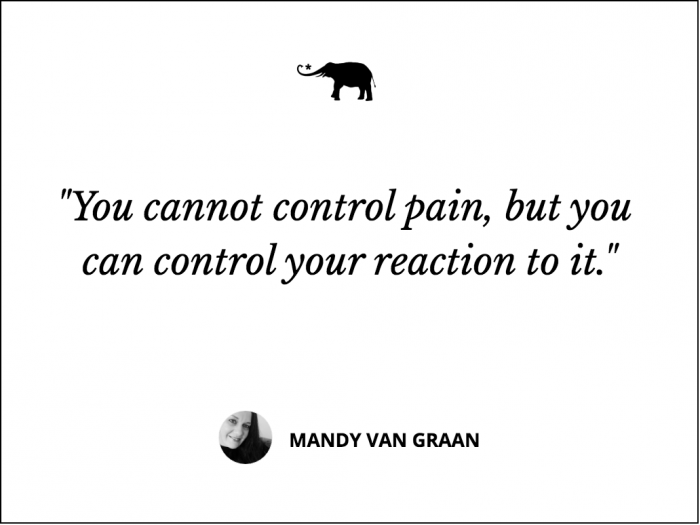*Warning: salty language ahead!
There is no doubt in my mind that, as a society, we are becoming less psychologically resilient.
Our aversion to pain and struggle in any capacity has become so ingrained in everything we do that I believe it’s compromising our ability to learn, grow, and function as healthy and stable adults.
What I find the most surprising is that there is a booming mental health industry (apps and products galore) that feeds us empty validation—feel-good nonsense that lacks any real substance—like we are crack addicts. Our pursuit of constant positivity, quick tech that obeys our every whim, and being applauded for every goddamn thing we do has made us fragile and weak.
We are offended by everything. We’re usually so far up our own asses with self-importance that we start to believe that being offended means something. It fucking doesn’t.
I spent five minutes the other day reading an article by a woman whining about being single and not having to give up her seat on a plane (that she paid extra for) for a family wanting to sit together. I would have given up my seat—because what the fuck difference would it have really made? I would have had to walk a little further to the toilet, I would have been reimbursed for my trouble, and a family could have enjoyed a plane ride together.
Have we become this misguided that simple acts of kindness are now being mistaken for a chance to be defiant? “Choose your battles” immediately comes to mind. I won’t even go near the vaccination debate.
If I could make a mental health app, it would probably have a stoic slant:
“Congratulations, you have another day to live, dare you not to be offended by every single thing that happens to you?”
“All the people you love will die, so if that day were today, did they go out knowing how much you loved them? No? Then fucking fix it.”
“There are people dying of starvation, the cautionary tales of your childhood to get you to eat your dinner were real, try and remember that when you are whining about how bad it is for you.”
We don’t become psychologically resilient from positive feelings or some misguided defiance of bullshit; it comes from leveraging our negative feelings and being of real benefit to each other.
Resiliency is how we use the shitty, uncomfortable, and inevitable bullshit in our lives, turning it into something useful and productive.
1. Care about others (not just yourself).
I can almost guarantee that what drives so much of the anxiety of humans and the real mental health crisis we face is the constant rumination and focus on the self. I’ve written about the self a great deal and how important it is to not pour from an empty cup, but what we are now doing is the exact opposite of self-sacrifice, bordering narcissism. Like everything in this life, find the fucking balance, and remember the golden rule of life: “Don’t be a dick.”
Find some cause, some mission, some deeper purpose to your actions that don’t only make your life better and easier but meaningfully contribute to the upliftment of others. Our world is cruel enough without our selfish desires and bitter resentments, making it worse. It is futile to try and prevent pain, but whether you use that pain to sharpen you into a blade to hurt others or not is always your choice.
2. Stop pain catastrophizing.
Believe it or not, psychologists have a term for when people take something insignificant and blow it up in their mind like they are being victimized. It’s called “pain catastrophizing,” and like COVID-19, it’s fucking everywhere. There are a few reasons people do this:
>> They may have become so coddled and lazy and have nothing meaningful happening in their lives, and the slightest inconvenience becomes a legitimate crisis for them.
>> We are socially rewarded for it with the waves of sympathy, attention, and sense of importance the social world bestows on us.
>> We have adopted catastrophizing as our identity; this is how the world now knows us and how we know ourselves, and we will do anything to protect our identity—it’s our security blanket. Love addiction certainly has become mine, and it’s time to put an end to that.
You cannot control pain, but you can control your reaction to it. You control whether you believe your pain is insurmountable or whether it’s trifle. Don’t pour kerosene into a dumpster fire and burn down the whole neighborhood. Pain is inevitable, but suffering is always optional.
3. Learn a lesson from Marcus Aurelius.
Do you want to know what Marcus Aurelius wrote about his morning routines?
“When you wake up in the morning, tell yourself: the people I deal with today will be meddling, ungrateful, arrogant, dishonest, jealous, and surly.”
Well, take that self-help industry, a nice, little “get fucked” from the king of the stoics.
Unlike today’s toxic positivity, the stoics believed that we should practice visualizing the worst possible outcome of a situation as a way of mental preparation. The thinking is simple, if you are comfortable and prepared for the worst, then everything else would be a happy bonus. I believe there is wisdom in this.
You could think differently, but think about it for a second; if you are pessimistic about the actions of the world around you, would you not be stronger in your own positive ability to surmount those obstacles? You decide.
4. Pain is the ultimate teacher.
A sick and twisted truth about human nature is that as much as we want to feel good all the time, there is a part of us that kind of likes the pain and struggle. Interestingly, if you have had an abundance of pain and struggle, you could even start to feel bored and disinterested with the healthy.
The most important and defining moments of our lives are often the most painful—near-death experiences, losing loved ones, divorces, heartbreaks, winning an excruciating health battle. It’s through that exact hardship that we grow, we change, and when we look back, we feel incredibly grateful for having moved through it.
When I think of the most resilient humans I know, what strikes me about them is that they don’t just invite struggle into their lives; they fucking own it. It’s slightly masochistic but true. Maybe we need to admit a little more to ourselves that pain gives us a rush that few other things do. What pain do you get a small kick out of? How can you leverage that to benefit you when the challenges come? Pain is an ally.
5. If you choose to suffer, don’t do it alone.
Remember how I said suffering is a choice? Well, it is, and sometimes, we choose it. Don’t choose to live in it, but if you are choosing to suffer, don’t do it alone.
As we move through this complicated and messy life, we build relationships, and those relationships are like small investments of our own happiness. You need a strong network of relationships because when life knocks you on your ass—which it is guaranteed to do—you will need people who can step in and share a bit of that emotional burden with you.
People you can sit and drink 10 beers with, who will listen to your endless rantings, self-beration, and self-pity, and most importantly, the ones who will point out when you are breaking the golden rule and behaving like a dick.
No matter how big of a badass you consider yourself to be, one of the most valuable aspects of this life is connecting with others in pain and struggle. As humans, we are evolved to be somewhat emotionally dependent on each other. The good times never last, but the friends who are with you when the chips are down, do.
~










Read 14 comments and reply